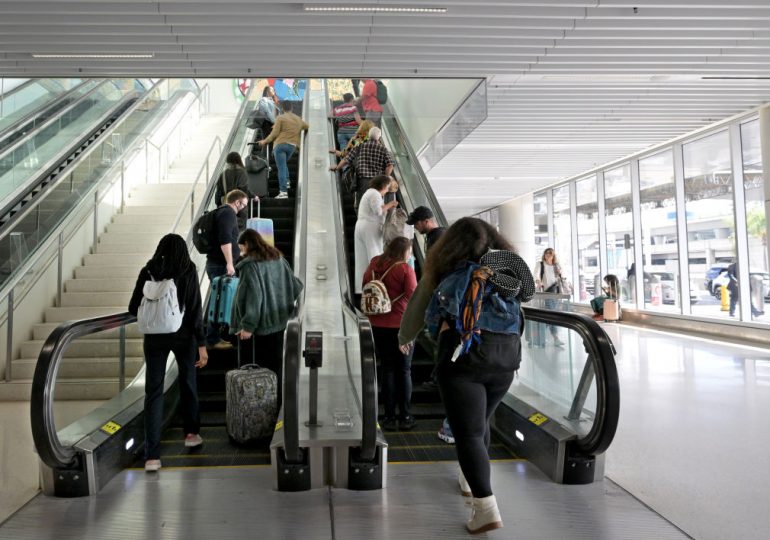A pre-Thanksgiving storm could disrupt holiday air and road travel for millions of travelers on the busiest travel week of the year, meteorologists warn.
Severe thunderstorms, rain, and snow are expected to hit several parts of the U.S., including Louisiana, Arkansas, Mississippi, Pennsylvania, and New York, as the storm moves from the Mississippi Valley up the northeast early in the week.
[time-brightcove not-tgx=”true”]
Delays in air travel are likely to occur across the East Coast earlier in the week—including New York City, Washington D.C., and Philadelphia, while delays on major highways are also expected.
“The system is currently over the South Central U.S. and will be progressing towards the east coast by Wednesday,” says Cody Snell, a meteorologist at the Weather Prediction Center for the National Weather Service (NWS).
What travelers can expect
On Monday night, the lower Mississippi Valley, particularly Louisiana and Mississippi, face the biggest threats, with expected high wind gusts, hail, and the potential for tornadoes, says Snell.
The storm is then expected to move to the mid-Atlantic and East Coast on Tuesday, drenching the region—including New York City and Boston— with rain. Severe storms are also set to hit the southeast and Southern Appalachians on Tuesday and produce a mix of snow, sleet, and freezing rain in parts of the Appalachians and the Northeast.
The good news is that the rough weather is not set to linger in any one place for too long. “The system is going to be progressive,” says Snell. “It’s going to move through each region by day.”
How to plan
As some of the busiest travel days of the year, traveling on the Tuesday and Wednesday before Thanksgiving can often come with unique delays and challenges— and the anticipated storm will only add to difficulties. Accuweather predicts significant weather-related delays on highways such as Interstates 40, 44, 55, 64, 70, 75 and 80 as well as on the mid-Atlantic I-80, I-81 and I-95.
Snell notes that, though the weather will cause some headaches, it will likely still be safe to travel in most regions. Snell advises travelers to have alerts set up for any weather advisories and include potential weather-related delays into their travel plans. ”If you’re expecting bad weather, you want to give yourself some more time so you’re not in a rush.”
Aside from some snow hitting parts of Colorado on Black Friday, the difficult weather is expected to subside by Thanksgiving, making the holiday itself—and the journey home—a little less stressful. “The majority of the country clears out, and it [should be] pretty tranquil,” says Snell.
Leave a comment
















